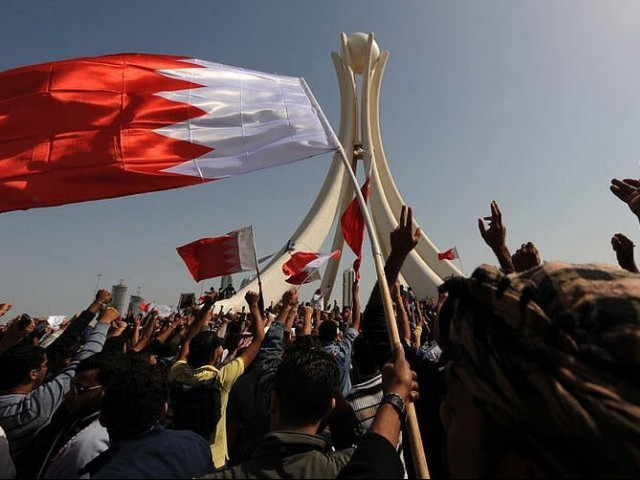Pakistanis endangered in Bahrain as anti-government protests fester

Pakistani immigrants in Bahrain are facing increased violence from locals who believe the kingdom uses them as security forces and police to help quell anti-government demonstrations.
At least five Pakistanis in the country – including two policemen in the capitol Manama -- have been killed by vengeful Bahrainis.
Most Pakistanis in the nation are poorly-paid construction workers and laborers, although some have indeed been hired as policemen and state security officers – many of whom have clashed with protesters.
It is estimated that almost one-third of Bahrain’s 25,000-strong police force comes from Pakistan, according to the Wall Street Journal (WSJ).
There are reportedly about 65,000 Pakistanis in the kingdom.
Moreover, the majority of Pakistanis are Sunni Muslims (as are the ruling elite of Bahrain, while most of the Bahraini population are Shias).
A Pakistani laborer told Agence France Presse (AFP) about Bahraini youths who broke into his home, attacked him and burned his flat down.
They started beating us after they found out we were Pakistanis, he said. They said: 'You people are here to kill us.”
Bahrainis have long complained that Pakistanis and Sunni Arabs are given special treatment as well as citizenship (in order to dilute the numbers and influence Shias). Jobs given to foreigners also stoke resentment among Bahraini Shias.
They want us to leave Bahrain. Pakistani people have jobs in government that they [Bahrainis] think should be theirs, a Pakistani told AFP.
Everybody wants to go back to Pakistan... We are scared here, another said.
Some Pakistanis who have been injured in attacks claim they were denied treatment in local hospitals by medical staff who sympathized with protesters.
They kicked us out because we are Pakistanis. Some hospital staff beat us, one charged.
However, Tehmina Janjua, a spokeswoman for Pakistan's Foreign Ministry, said the danger to Pakistanis in Bahrain is exaggerated, according to the WSJ.
I don't think we should paint it in a sectarian color, Ms. Janjua said, adding that her government has no plans to repatriate its nationals.
Former Bahraini opposition MP Matar Matar, a Shiite, has condemned attacks on foreign workers.
Although we are in the midst of a conflict, that does not mean we abandon our values. We respect foreign communities, he told AFP.
The issue of the Bahraini rulers hiring Pakistani security forces has long been controversial.
The Bahraini English language daily, The Express Tribune, reported that 1,000 Pakistani men are currently being recruited by the army-run Fauji and Bahria foundations for the Bahrain National Guard.
The ruling al-Khalifa family has also recruited mercenaries from Yemen and Jordan (both Sunni-majority countries).
Tariq Fatemi, a security analyst and former Pakistani ambassador to the U.S. and to Middle Eastern countries, told the WSJ that recruits from Pakistan are increasingly seen as the repressive arm of the state by Bahraini protesters.
Similarly, Jean-François Seznec, a professor at Georgetown University who studies Bahrain, told the WSJ: The royal family of Bahrain feels much more comfortable having foreigners to guard them than locals. They are mercenaries and they are reliable to whoever hires them. Plus, Pakistani recruits in Bahrain can earn much more money than they ever could at home, so they are likely to keep coming.
Khalil Almarzooq, a senior member of Al-Wefaq, Bahrain's principal opposition party, complained to WSJ: The reason for the security apparatus is to protect the regime, not the people.”
© Copyright IBTimes 2024. All rights reserved.




















